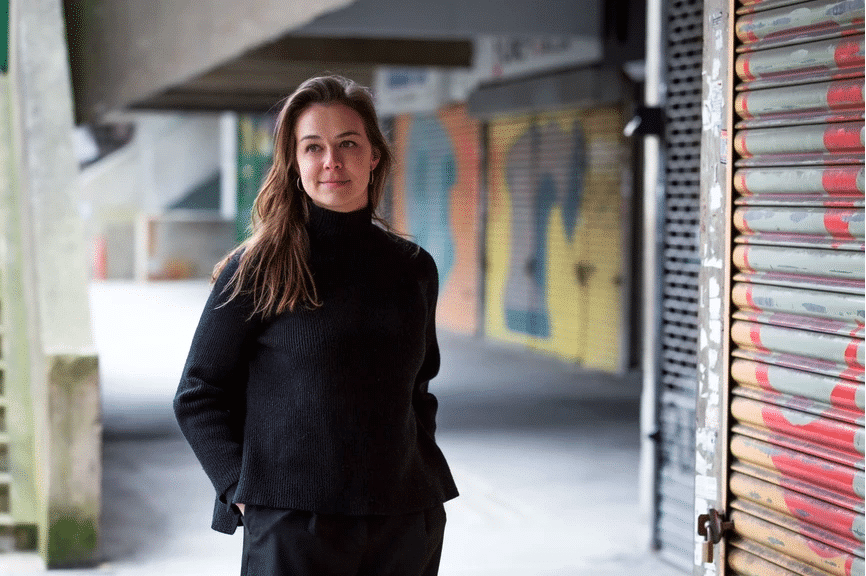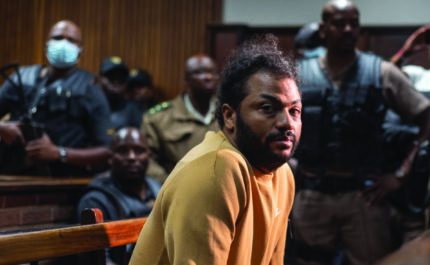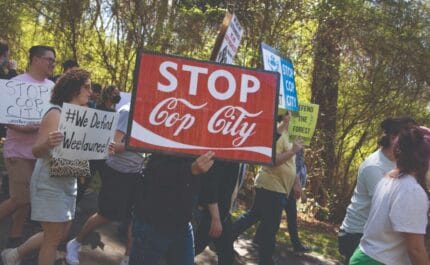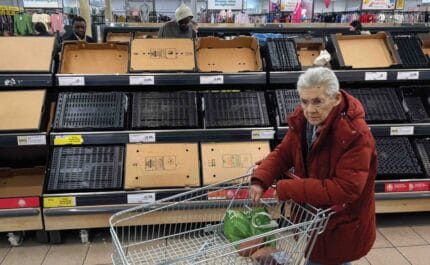Moment that mattered: The murder of Sarah Everard
In 2021 we spoke to Claire Barnett, executive director of UN Women UK, about public safety
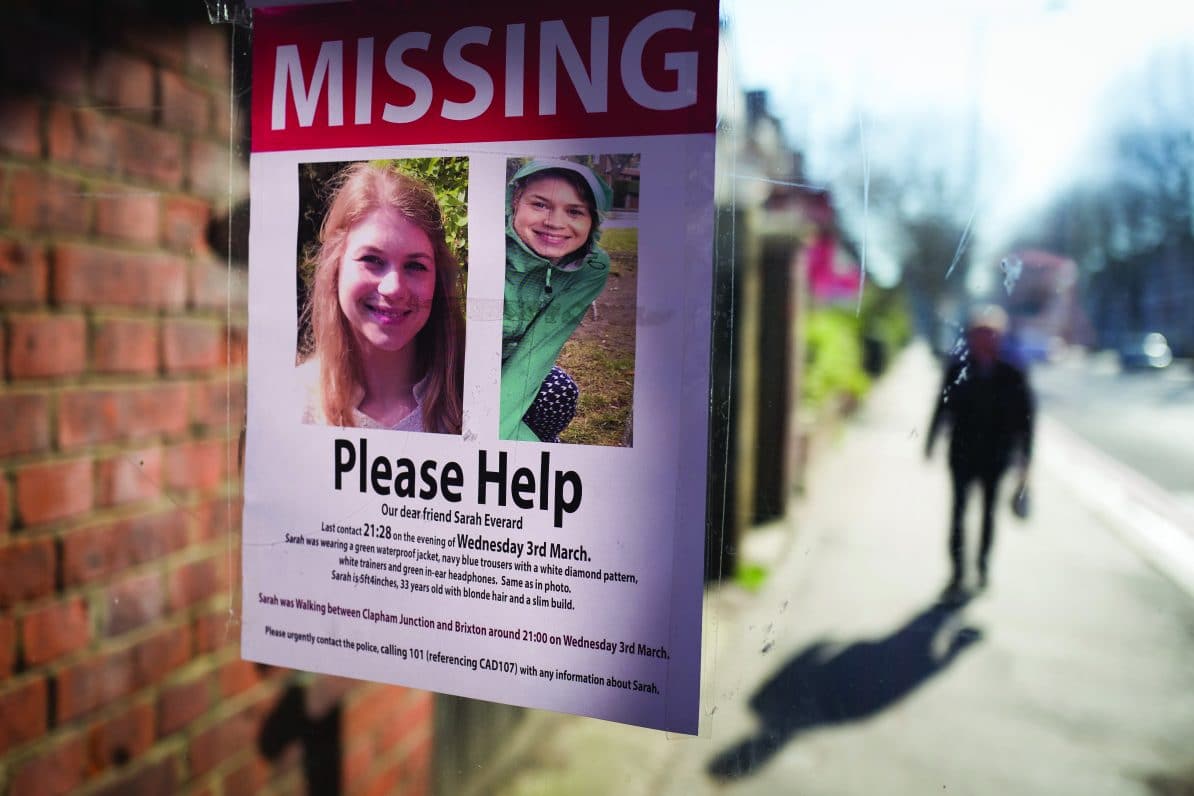
A poster requesting information about the disappearance of Sarah Everard, 9th March 2021 (Photo by Leon Neal/Getty Images)
23rd May 2021 (Taken from: #42)
On 3rd March, Sarah Everard went missing while walking home in south London. By the time the 33-year-old’s body had been discovered in Kent a week later on 10th March, a wave of grief and anger had swept through the country.
On the same day Everard’s body was found, a parliamentary report revealed the magnitude of the problem of women’s safety in public spaces. Published by an All-Party Parliamentary Group (APPG) launched by UN Women UK, it included survey results showing that 70 percent of British women have experienced sexual harassment in public places. For women aged 18-24 that number was closer to 90 percent. Claire Barnett, executive director of UN Women UK – which is dedicated to gender equality – describes the situation as a “human rights crisis”.
“We had always scheduled to release this research on 10th March so the timing was tragically relevant,” says Barnett, who won’t talk about the specifics of the Everard killing because she doesn’t know the wishes of the victim’s family and doesn’t want to co-opt the story for her own organisation’s campaign. “What did stand out to me, however, was that it led to an unprecedented number of women in particular, but also marginalised people in general, saying ‘We’re absolutely exhausted of never knowing if we’re going to be safe just moving around on our daily commute – and we’re not going to stand for it any more’”.
“We’re absolutely exhausted of never knowing if we’re going to be safe just moving around on our daily commute – and we’re not going to stand for it any more”
The belief that enough was enough was expressed at vigils across the country in March. At a 13th March gathering in Clapham Common, close to the friend’s house Everard had left shortly before her abduction, confusion over lockdown rules contributed to a distressing situation in which police officers forcibly removed attendees. Images of officers handcuffing and dragging away mourners spread on social media and led to widespread criticism of the Metropolitan Police, although on 30th March a police watchdog concluded that the officers acted appropriately. “In any process where trauma is being aired in a society it’s important to give people space to mourn and not be closed down,” says Barnett. “Of course there are social distancing concerns but people came out into a public space in order to share a collective moment of grieving, not just for Sarah Everard but all women who have experienced abuse and violence.”
The prevalence of harassment revealed by the UN Women UK survey perhaps explains why so many people demanded change after Everard’s killing. But while the outpouring of anger was unprecedented, the murder itself was far from an isolated incident. In parliament on 11th March, Labour MP Jess Phillips read out the names of 118 women and girls who had been killed by men in the UK in the past year.
The survey was carried out as part of the Safe Spaces Now project, which fits into a long-running UN campaign to make cities around the world safer for women and girls. The project saw more than 1,000 British women and girls testify about their experiences of sexual harassment and abuse in public, and suggest ideas for making public spaces safer. There were recurring themes in the women’s testimonies: many spoke of the emotionally draining daily experience of having to constantly look over their shoulders while walking in public. Around half the respondents talked about the importance of their mobile phones. “Smartphones give you connectivity to emergency services, to friends and to loved ones. It’s clear that the internet and digital technology can help keep us safe in public spaces,” says Barnett.
To explore the potential for the development of technology to help tackle the problem, UN Women UK worked with Safe & The City, an organisation that uses crowdsourced data and police reports to help its app users navigate safer routes through urban areas. Barnett is particularly enthusiastic about the potential for “gamified solutions”, which use elements of game-playing to engage young people and encourage empathy. One example, she says, might involve users entering an online environment in which they play the role of a witness to sexual harassment, and can safely explore different scenarios for intervention.
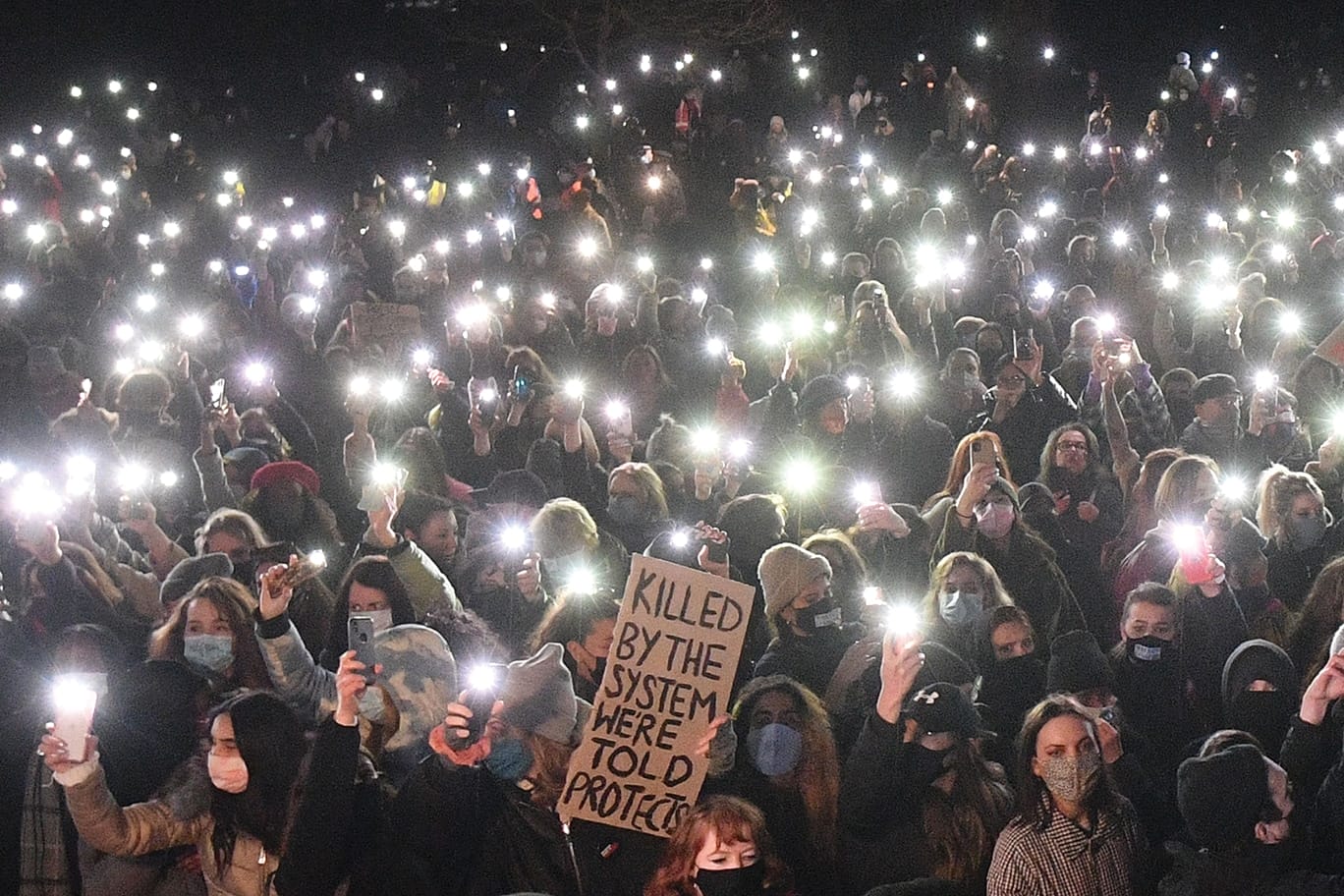
Mourners turn on their phone torches at a vigil in honour of Sarah Everard at Clapham Common, London, 13th March 2021 (Photo by JUSTIN TALLIS / AFP) (Photo by JUSTIN TALLIS/AFP via Getty Images)
Barnett has also met owners of public spaces to talk about what can be done to make them safer. Owners of nightlife venues, she says, can play a big role. “If you feel you’re under threat, maybe you think your drink’s been spiked, you go to the bathroom [in search of a safe place] – but there are many important questions to be considered about bathroom design. Do you have to queue to get in? When you’re leaving can you take a different route to exit the space or do you have to return to where the threatening person is? Can panic buttons be installed?”
The third stage of the Safe Spaces Now campaign, after collecting information and proposing possible solutions, involves taking the findings to lawmakers and getting them to commit to substantial action. Barnett says that it was easy to get female parliamentarians to join the UN Women UK APPG because “they experience abuse and harassment on such a regular basis” but that getting support from male MPs has been more of a challenge. Lack of representation remains a hurdle, says Barnett, not only in parliament, where only a third of MPs are female, but also in regional authorities, local business organisations and corporate boardrooms – the kind of places where mundane but important decisions get made about things such as nightclub bathrooms, street lighting or bus station layouts. “Representation in decision-making is absolutely part of the issue,” says Barnett.
“Representation in decision-making is absolutely part of the issue”
The government insists that combating violence against women and girls is one of its top priorities. Shortly after the murder of Sarah Everard, home secretary Priti Patel pledged to publish a comprehensive new Violence Against Women and Girls Strategy, which will “place victims and survivors at the heart” of its approach. Patel commissioned a police watchdog, Her Majesty’s Inspectorate of Constabulary and Fire Rescue Services, to assess the way the police engages with female victims of violence. In July it published an interim report, which called for a “radical” change of approach. It stressed that the “police cannot solve this alone” and that society as a whole has to come together to help end “a national epidemic of violence against women and girls”.
To reach this objective, Barnett believes that society must move away from an outdated notion that women are responsible for their own safety and towards an understanding that it is our collective responsibility. Barnett sees encouraging signs including a more widespread understanding that actions such as wolf-whistling and catcalling are unacceptable and should be considered a form of sexual harassment.
She also believes that Everyone’s Invited, an Instagram campaign to draw attention to rape culture in schools and colleges, which saw testimonies soar in the weeks following the Everard killing, has helped increase public awareness of the deep-rootedness of the crisis. “The stories coming out of schools are horrifying, but if you work in the women’s sector you already know this is the reality,” Barnett says.
On 9th July, 48-year-old police officer Wayne Couzens pleaded guilty to the murder of Sarah Everard, having previously pleaded guilty to her kidnap and rape. An armed officer in the Met’s Parliamentary and Diplomatic Protection group, Couzens now faces a mandatory life sentence. Metropolitan police commissioner Dame Cressida Dick, who had faced calls for her resignation after the chaotic Clapham Common vigil, said that she felt “sickened, angered and devastated” by Couzens’ crimes.
Barnett hopes that the awful killing might have a positive legacy, and believes that the time for dramatic change is right now. “We will hopefully never have to leave public spaces again, but the Covid-19 pandemic has given us an opportunity to take a step back and think about how we want to consciously re-enter those spaces,” she says. “I’ve never seen a moment like this where we have the opportunity not only to rethink how we design public spaces, but also how we behave within them.”
Due to the reckoning in part fuelled by the murder of Sarah Everard, Barnett is seeing signs that society as a whole is finally grasping the magnitude of the problem of women’s safety, and is more willing than before to confront it. “To see this level of momentum is really positive and it’s part of our role to ensure that people hold on to that hope,” she says. “You do need to have hope if you’re going to have the energy to make change happen.”
Slow Journalism in your inbox, plus infographics, offers and more: sign up for the free DG newsletter. Sign me up
Thanks for signing up.
